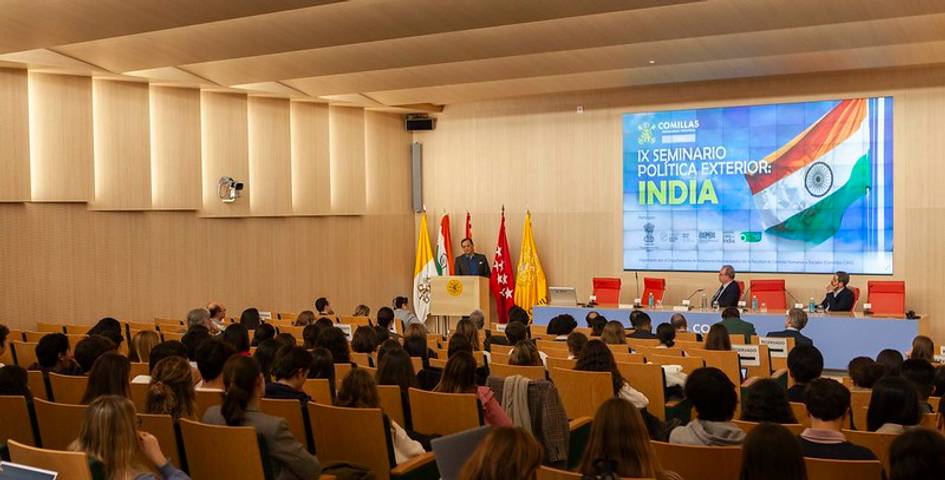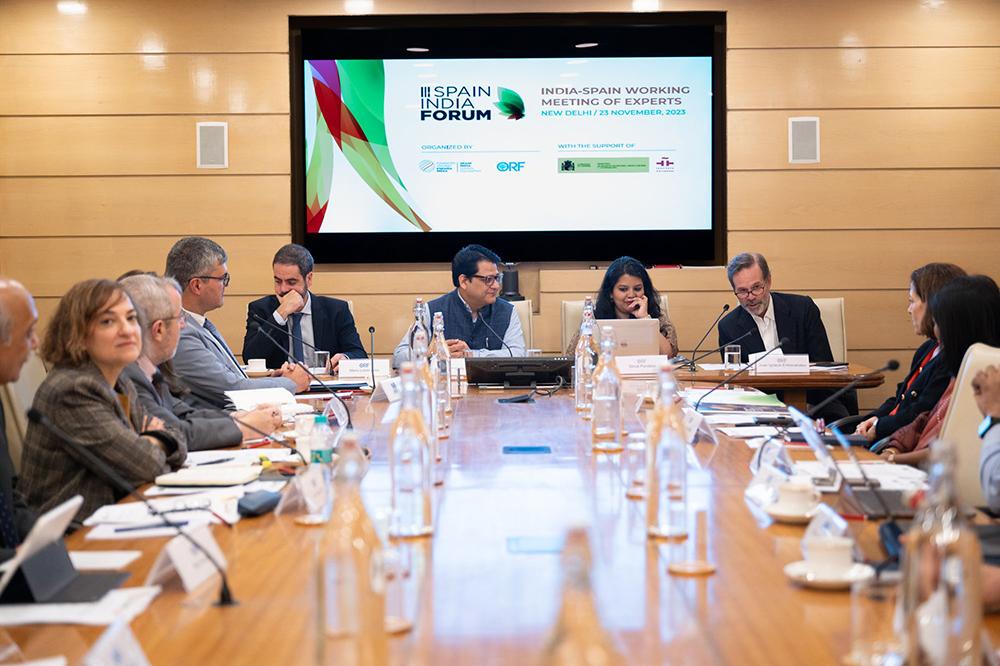"The next 20 years will be India's"
The 9th Seminar on Foreign Policy was held at Comillas CIHS, which brought together international experts who analysed the role of India in the world

The Indian ambassador stressed his country's responsibility to "act for a better world by changing the system from within".
19 February 2024
India, the first democracy in the world in terms of number of inhabitants, was the protagonist in the 9th Foreign Policy Seminar at Comillas, which was attended by the Ambassador of that country, Dinesh Kumar Patnaik. In his speech, he stressed the importance of studying a country such as India, which in the coming decades "will be home to one out of every three young people in the world", and because "the next 20 years will belong to India, in the same way that the last 20 have belonged to China". Not surprisingly, "25 years from now we will reach the status of a developed country, and we will be the third world economy, with great weight in global affairs", said the ambassador, who stressed his country's responsibility to "act and achieve a better world by changing the system from within, without breaking the existing regulatory framework".
For Mario López Areu, lecturer in International Relations at Comillas CIHS, expert on India and author of several books on the country, "the Asian giant has burst with force into international leadership in 2023, holding the presidencies of the G20 and the Shanghai Cooperation Organisation, and positioning itself as the fifth largest economy in the world". All those who spoke during the conference agreed that India is a key country in the new regional order in the Indo-Pacific and that, for this reason, "it is being courted by the United States and the European Union as a preferential partner in the face of the rise of China".
In this sense, one of the international speakers, Jagannath Panda, Director of the Stockholm Centre for South Asian and Indo-Pacific Affairs at the Swedish Institute for Security and Development Policy, stressed that "India has a network of both bilateral and multilateral alliances around the world. It has become a major power in the Indo-Pacific, with multi-aligned policies and strategies. Harsh Pant, lecturer at King's College London, referring to China, said that "it has not respected international institutions: the region needs a neutral power and a good alternative to the US and China is India".
The seminar, organised by the Department of International Relations of the Faculty of Humanities and Social Sciences (Comillas CIHS) was attended by national and international experts who analysed the rich and complex evolution of India's foreign doctrine from different perspectives, both thematic and geographical. In this way, issues such as the Indian soft power of its culture and economy, bilateral and regional relations with countries all over the world, the coexistence between the multiple religions that coexist in the country, and relations with Spain and the EU were dealt with.
Carlos Moreno, General Director for Asia and the Pacific at the Ministry of Foreign Affairs, stressed that "Spain and the European Union 'have a great interest in building a more open Indo-Pacific. India upholds democratic values shared by the EU and respect for international law". In this sense, Spain strongly values its relationship with India, both in bilateral initiatives, such as economic and technological cooperation, as well as in global affairs.
You may also be interested in

Comillas clausuró la primera edición del Summer School on European Affairs

Los profesores de Comillas CIHS, Mario López Areu y Javier Gil, participaron como expertos de la delegación española

La conferencia está enmarcada en el ciclo "Nuevos Desafíos de la Agenda Internacional" de Comillas CIHS.
